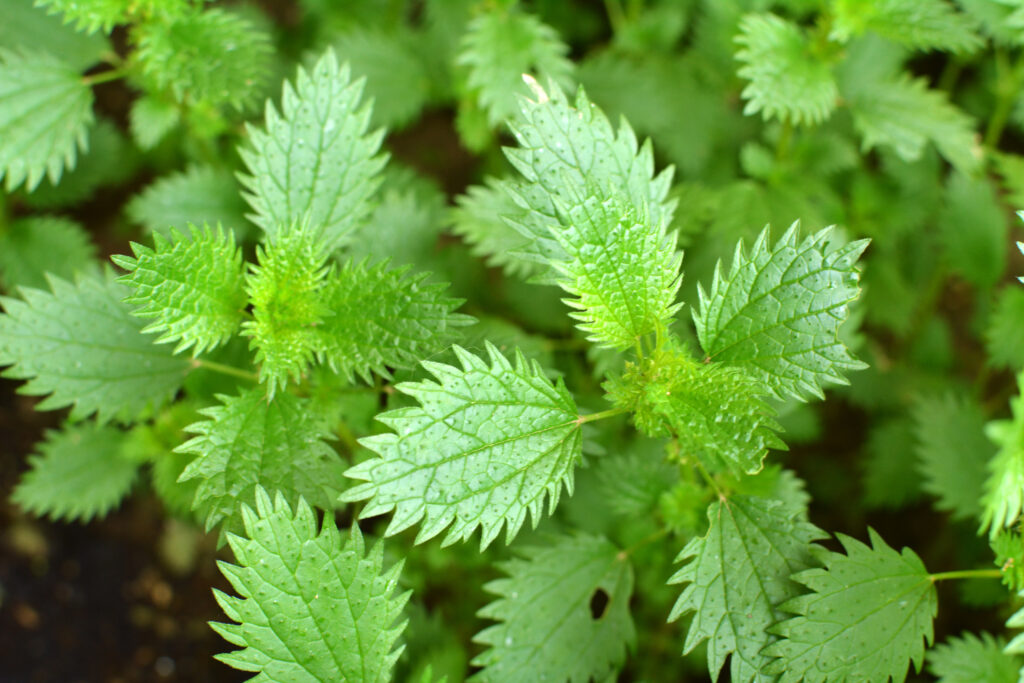Nettle doesn’t ask to be liked. Most people meet it through a sting — sudden, sharp, and memorable. But this plant has earned its place in herbal traditions for reasons that go far beyond its defence mechanisms. Quietly powerful and surprisingly versatile, nettle is a plant that gives more than it takes.

1. It’s full of nutrients
Nettle is rich in iron, magnesium, calcium, vitamin C, and even plant-based protein. For centuries, it’s been used as a spring tonic to help the body recover from winter fatigue.
2. The sting has a purpose
Those tiny hairs on the leaves and stems inject compounds like histamine and formic acid. In traditional use, the sting has been applied deliberately to improve circulation and ease joint pain.
3. Drying or cooking removes the sting
Once nettle is dried, steamed, or infused in water, the chemicals that cause irritation are neutralised. You’re left with a mild, earthy herb that tastes a little like spinach but with more mineral depth.
4. It’s often used to support energy and iron levels
Thanks to its high iron content and easy-to-absorb nutrients, nettle is a go-to herb for herbalists when someone feels run down or needs nutritional support after illness.
5. It helps with fluid balance
Nettle has gentle diuretic properties. It’s traditionally used to support kidney function, reduce puffiness, and ease urinary discomfort.
6. It’s good for the scalp and hair
Nettle is often used in natural shampoos and rinses. It helps reduce dandruff and strengthen hair, thanks to its minerals and gentle toning effect on the skin.
7. It may ease seasonal allergies
Some research suggests nettle can help reduce symptoms like sneezing and itching by interacting with histamine receptors in the body. That’s especially interesting given how many people associate nettle with allergic reactions.
8. It’s naturally sustainable
Nettle grows quickly, needs no fertiliser or pesticides, and supports biodiversity. It often appears in wild hedgerows and regenerates poor soil. A resilient plant with very low environmental impact.
9. It has a long history of use
Nettle has been used across Europe and Asia for thousands of years. Archaeological finds show it was used for food, medicine, and even fabric in ancient cultures.
10. It’s not just for tea
You can find nettle in powders, tinctures, capsules, herbal vinegar, and even soups and pestos. Its use in the kitchen is growing, especially among those who value wild food and functional nutrition.
Nettle might not be charming at first glance, but it doesn’t need to be. It has something more important — substance. It offers nourishment, resilience, and a long tradition of care. In a world full of polished products, nettle remains honest. Simple, strong, and rooted in the real.





I first came across IVA Plants and Alex their founder at my local monthly Artisan market and decided to try the Sleep Well tea and the Rose Garden Tea. I was very impressed with the lovely aroma and the quality of the ingredients. There is an online shop but I thought I would head down to the market again to stock up. This time I bought dried Chamomile flowers, Rose buds and a Houjicha roasted greentea that she suggested for me as it is lower in caffeine. I would highly recommend all of the purchases I have made.